
A beautiful rendering of French composer Eric Satie's 1918 masterwork "Socrate", originally for four sopranos and chamber orchestra, here stripped to its essence as a duo with Olalla Aleman on soprano and Guy Vandromme on piano, maintaining Satie's characterist reserve and refinement in the 3 parts: "portrait of socrates"; "banks of the ilissus"; and "death of socrates".
In Stock
Quantity in Basket: None
Log In to use our Wish List
Shipping Weight: 3.00 units
EU & UK Customers:
Discogs.com can handle your VAT payments
So please order through Discogs
Sample The Album:
Erik Satie-composer
Olalla Aleman-soprano
Guy Vandromme-piano
Click an artist name above to see in-stock items for that artist.
UPC: 4011778041085
Label: Edition Wandelweiser Records
Catalog ID: EWR 1812
Squidco Product Code: 26752
Format: CD
Condition: New
Released: 2018
Country: Germany
Packaging: Cardstock 3 page foldover in vinyl sleeve
Recorded at Wilde Westen, in Kortrijk, Belgium, in July, 2018, by Wannes Gonnissen.
A beautiful rendering of French composer Eric Satie's 1918 masterwork "Socrate", originally for four sopranos and chamber orchestra, here stripped to its essence as a duo with Olalla Aleman on soprano and Guy Vandromme on piano, maintaining Satie's characterist reserve and refinement in the 3 parts: "portrait of socrates"; "banks of the ilissus"; and "death of socrates".

The Squid's Ear!
Artist Biographies
• Show Bio for Erik Satie "Erik Satie, original name in full Eric Alfred Leslie Satie, (born May 17, 1866, Honfleur, Calvados, France-died July 1, 1925, Paris), French composer whose spare, unconventional, often witty style exerted a major influence on 20th-century music, particularly in France. Satie studied at the Paris Conservatory, dropped out, and later worked as a café pianist. About 1890 he became associated with the Rosicrucian movement and wrote several works under its influence, notably the Messe des pauvres (composed 1895; Mass of the Poor). In 1893, when he was 27, Satie had a stormy affair with the painter Suzanne Valadon. From 1898 he lived alone in Arcueil, a Paris suburb, cultivating an eccentric mode of life and permitting no one to enter his apartment. Beginning in 1905, he studied at the Schola Cantorum under Vincent d'Indy and Albert Roussel for three years. About 1917 the group of young composers known as Les Six adopted him as their patron saint. Later the School of Arcueil, a group including Darius Milhaud, Henri Sauguet, and Roger Désormiere, was formed in his honour. Satie's music represents the first definite break with 19th-century French Romanticism; it also stands in opposition to the works of composer Claude Debussy. Closely allied to the Dada and Surrealist movements in art, it refuses to become involved with grandiose sentiment or transcendent significance, disregards traditional forms and tonal structures, and characteristically takes the form of parody, with flippant titles, such as Trois morceaux en forme de poire (1903; Three Pieces in the Shape of a Pear) and Embryons Desséchés (1913; Desiccated Embryos), and directions to the player such as "with much illness" or "light as an egg," meant to mock works such as Debussy's preludes. Satie's flippancy and eccentricity, an intimate part of his musical aesthetic, epitomized the avant-garde ideal of a fusion of art and life into an often startling but unified personality. He sought to strip pretentiousness and sentimentality from music and thereby reveal an austere essence. This desire is reflected in piano pieces such as Trois Gnossiennes (1890), notated without bar lines or key signatures. Other early piano pieces, such as Trois Sarabandes (1887) and Trois Gymnopédies (1888), use then-novel chords that reveal him as a pioneer in harmony. His ballet Parade (1917; choreographed by Léonide Massine, scenario by Jean Cocteau, stage design and costumes by Pablo Picasso) was scored for typewriters, sirens, airplane propellers, ticker tape, and a lottery wheel and anticipated the use of jazz materials by Igor Stravinsky and others. The word Surrealism was used for the first time in Guillaume Apollinaire's program notes for Parade. Satie's masterpiece, Socrate for four sopranos and chamber orchestra (1918), is based on the dialogues of Plato. His last, completely serious piano works are the five Nocturnes (1919). Satie's ballet Relâche (1924) contains a Surrealistic film sequence by René Clair; the film score Entr'acte, or Cinéma, serves as an example of his ideal background, or "furniture," music. Satie was dismissed as a charlatan by musicians who misunderstood his irreverence and wit. They also deplored the nonmusical influences in his life-during his last 10 years his best friends were painters, many of whom he had met while a café pianist. Satie was nonetheless deeply admired by composers of the rank of Darius Milhaud, Maurice Ravel, and, in particular, Claude Debussy-of whom he was an intimate friend for close to 30 years. His influence on French composers of the early 20th century and on the later school of Neoclassicism was profound." ^ Hide Bio for Erik Satie • Show Bio for Olalla Aleman "Olalla Alemán starts his musical studies at the age of ten in the children's choir of the Orfeón Fernández Caballero (Murcia), where he receives his first solfege lessons and piano. Later he studied medium grade singing at the conservatory "Manuel Massotti Littel "from Murcia and in Madrid, at the conservatory" Teresa Berganza ". Later in Barcelona he studied Historical and Contemporary singing and singing in the Higher School of Music of Catalonia (ESMuC). He has collaborated with numerous national and international formations such as: Capella Reial de Catalunya, Orchestra Barroca Catalana, "Forma Antiqva", "La Tempestad", "Camerata Iberia", "La Caravaggia", Consort of violas de gamba from the University of Salamanca, "B'Rock", directed by Skip Sempé, "Música Temparana" (Adrián van der Spoel), "Capilla Flamenca" (Dirk Snellings) and of Graindelavoix (Björn Schmelzer) among others. Since 2005 he is a member of "Los Músicos" of His Highness ", directed by Luis Antonio González. As a soloist he has acted in the most important festivals in Europe and Latin America. He has made recordings for the radio Classical Belgian "Klara", RNE, and France3. Also as a soloist he has made recordings labels for the labels: "Ancient Music Aranjuez", Arsis, Verso, Enchiriadis, Glossa and Alpha." ^ Hide Bio for Olalla Aleman • Show Bio for Guy Vandromme "Pianist/conductor Guy Vandromme is a performer within the fields of opera and music theatre, dance, working as a soloist, accompanist, conductor and artistic director. He has been a major driver behind the program of the European Cultural Capital of Brugge 2002. More recently he became responsible for the festival Klankenstroom bringing cultural heritage, classical music and tourism together. His main focus is to open the boundaries of music theatre, collaborating with contemporary artists, and exploring scores of forgotten music. This year his first solo recording of music of John Cage will be edited by Wandelweiser records." ^ Hide Bio for Guy Vandromme
12/17/2025
Have a better biography or biography source? Please Contact Us so that we can update this biography.
12/17/2025
Have a better biography or biography source? Please Contact Us so that we can update this biography.
12/17/2025
Have a better biography or biography source? Please Contact Us so that we can update this biography.
Track Listing:
1. Portrait Of Socrates 6:16
2. Banks Of The Ilissus 7:01
3. Death Of Socrates 18:03
Compositional Forms
Avant-Garde
Duo Recordings
Piano & Keyboards
Unusual Vocal Forms
New in Compositional Music
Search for other titles on the label:
Edition Wandelweiser Records.

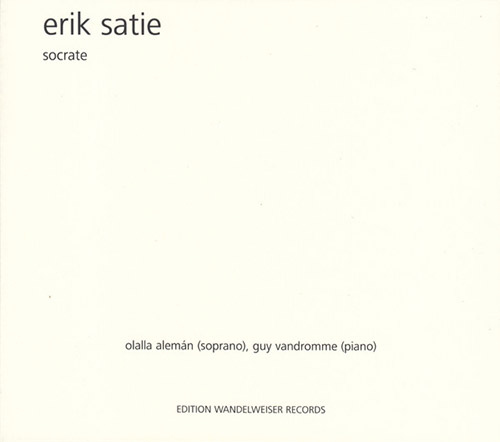

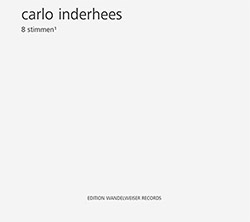
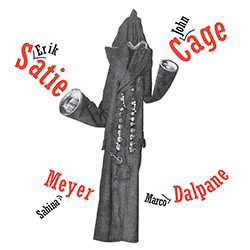
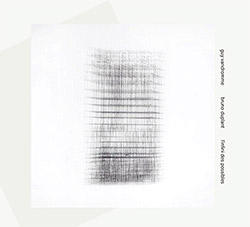

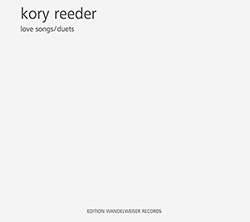


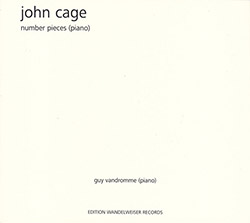








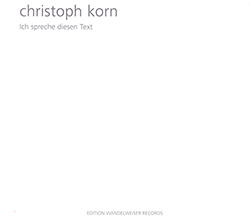




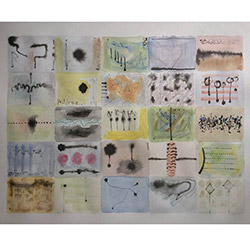
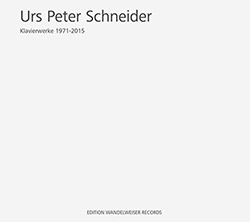



![HobbyHouse (Mia Dyberg / Axel Filip): HobbyHouse [CD + DOWNLOAD]](https://www.teuthida.com/productImages/misc4/36944.jpg)
![Mines, Kelsey / Erin Rogers: Scratching At The Surface [CD + DOWNLOAD]](https://www.teuthida.com/productImages/misc4/36945.jpg)
![Nebbia, Camila (feat/ Marilyn Crispell / Lesley Mok): A Reflection Distorts Over Water [CD + DOWNLOAD]](https://www.teuthida.com/productImages/misc4/36946.jpg)
![Vanheerentals, Adia: Taking Place [CD + DOWNLOAD]](https://www.teuthida.com/productImages/misc4/36947.jpg)
![Mines, Kelsey / Vinny Golia: Collusion and Collaboration [CD + DOWNLOAD]](https://www.teuthida.com/productImages/misc4/36948.jpg)
![Parkins, Zeena: Lament For The Maker [CD + DOWNLOAD]](https://www.teuthida.com/productImages/misc4/36949.jpg)
![Evans, Peter / Mike Pride : A Window, Basically [CD + DOWNLOAD]](https://www.teuthida.com/productImages/misc4/36950.jpg)


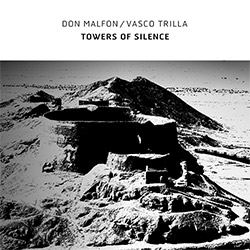
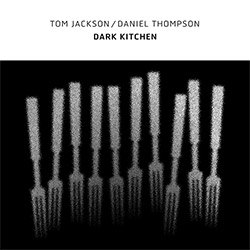
![Frey, Jurg : Composer, Alone [3 CDs]](https://www.teuthida.com/productImages/misc4/36927.jpg)
![Belorukov, Ilia / Alex Riva: Wrestling For Futility [CASSETTE w/DOWNLOAD]](https://www.teuthida.com/productImages/misc4/36994.jpg)
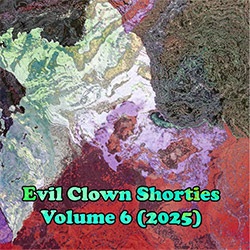











![Agnel, Sophie: Learning [VINYL]](https://www.teuthida.com/productImages/misc4/36841.jpg)

![Monaco, Amanda (w/ Michael Attias / Sean Conly / Satoshi Takeishi) : Deathblow [VINYL+ DOWNLOAD]](https://www.teuthida.com/productImages/misc4/36956.jpg)
![Frey, Jurg with ensemble]h[iatus: Je Laisse A La Nuit Son Poids D](https://www.teuthida.com/productImages/misc4/36988.jpg)
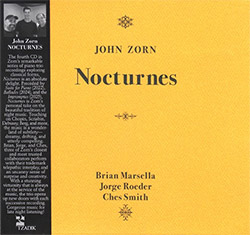
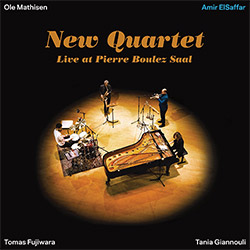
![ElSaffar, Amir / New Quartet : Live at Pierre Boulez Saal [VINYL]](https://www.teuthida.com/productImages/misc4/36830.jpg)

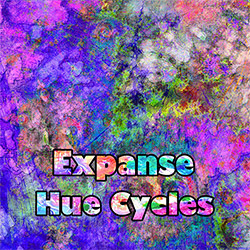
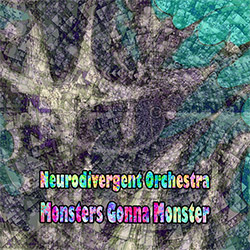


![Musicworks Magazine: #152 Fall 25 [MAGAZINE + CD]](https://www.teuthida.com/productImages/misc4/37004.jpg)





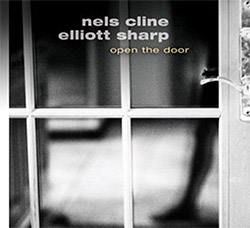
![[ahmed] (Thomas / Grip / Gerbal / Wright): Sama](https://www.teuthida.com/productImages/misc4/36976.jpg)


![Cleaver, Gerald / Brandon Lopez / Hprizm: In The Wilderness [COLOR VINYL]](https://www.teuthida.com/productImages/misc4/33060.jpg)
![McPhee, Joe : Defiant Jazz: a Joe McPhee Taster [VINYL]](https://www.teuthida.com/productImages/misc4/36859.jpg)
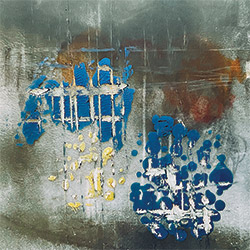
![Mateen, Sabir / Patrick Holmes / Federico Ughi : Survival Situation [LTD VINYL LP + DOWNLOAD]](https://www.teuthida.com/productImages/misc4/29891.jpg)
![Tucker, Dave / Pat Thomas / Thurston Moore / Mark Sanders: Educated Guess Vol. 1 [COLORED VINYL]](https://www.teuthida.com/productImages/misc4/30183.jpg)
![Sarian, Michael / Matthew Putman: A Lifeboat (Part I) [COLORED VINYL]](https://www.teuthida.com/productImages/misc4/30426.jpg)

![Genthon, Anouck / Lionel Marchetti: Suite Blanche [2 CDs]](https://www.teuthida.com/productImages/misc4/36642.jpg)
![Toeplitz, Kasper T.: Erosions Programmees [CD + BOOKLET]](https://www.teuthida.com/productImages/misc4/36639.jpg)
![Gate, The : Amost Live [CASSETTE + MAGAZINE]](https://www.teuthida.com/productImages/misc4/36836.jpg)






![A Magic Whistle: The Solar Cell [VINYL]](https://www.teuthida.com/productImages/misc4/36658.jpg)

![McGee, Hal: Columbus Expedition [Cassette w/ Download]](https://www.teuthida.com/productImages/misc4/36650.jpg)


![Jaeger, Kassel: Fernweh [VINYL 2 LPs]](https://www.teuthida.com/productImages/misc4/36541.jpg)





![+DOG+: The Light Of Our Lives [2 CDs]](https://www.teuthida.com/productImages/misc4/36009.jpg)


![Eternities: Rides Again [CASSETTE]](https://www.teuthida.com/productImages/misc4/36247.jpg)

![Lopez, Francisco: Untitled (2021-2022) [2 CDs]](https://www.teuthida.com/productImages/misc4/36438.jpg)





![Pisaro-Liu, Michael: Within (2) / Appearance (2) [2 CDs]](https://www.teuthida.com/productImages/misc4/36831.jpg)










![Musicworks Magazine: #151 Summer 25 [MAGAZINE + CD]](https://www.teuthida.com/productImages/misc4/36559.jpg)

![Brown, Dan / Dan Reynolds: Live At The Grange Hall [unauthorized][CASSETTE]](https://www.teuthida.com/productImages/misc4/36245.jpg)


![Zorn, John: The Song of Songs [CD + CD BOOK]](https://www.teuthida.com/productImages/misc4/36923.jpg)

![Coultrain: Mundus [COLORED VINYL]](https://www.teuthida.com/productImages/misc4/33056.jpg)
![Hprizm: Signs Remixed [COLORED VINYL]](https://www.teuthida.com/productImages/misc4/30635.jpg)
![Halls Of the Machine: All Tribal Dignitaries [CASSETTE w/ DOWNLOAD]](https://www.teuthida.com/productImages/misc4/36134.jpg)



![Koenjihyakkei: Live at Club Goodman [2 CDs]](https://www.teuthida.com/productImages/misc4/36111.jpg)

![Sorry For Laughing (G. Whitlow / M. Bates / Dave-Id / E. Ka-Spel): Rain Flowers [2 CDS]](https://www.teuthida.com/productImages/misc4/35985.jpg)

![Rolando, Tommaso / Andy Moor : Biscotti [CASSETTE w/ DOWNLOADS]](https://www.teuthida.com/productImages/misc4/36106.jpg)


![Electric Bird Noise / Derek Roddy: 8-10-22 [CD EP]](https://www.teuthida.com/productImages/misc4/35970.jpg)








![Elephant9 : Mythical River [VINYL]](https://www.teuthida.com/productImages/misc4/34624.jpg)



![Elephant9 with Terje Rypdal: Catching Fire [VINYL 2 LPs]](https://www.teuthida.com/productImages/misc4/35355.jpg)
![Coley, Byron: Dating Tips for Touring Bands [VINYL]](https://www.teuthida.com/productImages/misc4/17906.jpg)

![Lost Kisses: My Life is Sad & Funny [DVD]](https://www.teuthida.com/productImages/misc4/lostKissesDVD.jpg)